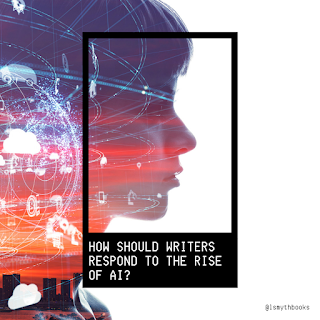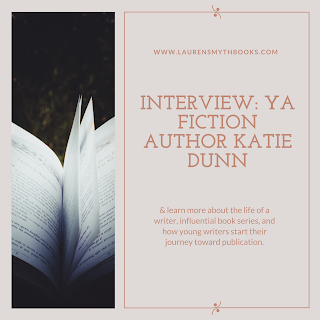Writing Tips - Guest Post by Andrew Guenther
Writing can be a wonderful experience, or it can be like
pulling teeth. As someone who’s been writing for the last ten years, I can give
you numerous examples of both. When I first started writing in 2009, it was
screenplays. I didn’t take any classes on the subject, I simply dove right in.
Just this past year I opened up the first screenplay I ever wrote, and while I
think the idea is awesome (I plan on adapting it for a novel), the writing is
subpar. I didn’t know what I was doing back then and it showed. But hey, you’ve
got to start somewhere!
Now, four screenplays and two novels later, I think I’ve
managed to find my voice; the style and characteristics that were missing back
in 2009. I still have the same ideas and the same drive I had back then, but I
wasn’t experienced when I first started writing. I hadn’t gone through the ‘struggle’.
You know what I’m talking about. I won’t say I’m an expert on writing. I’m
still unpublished and I’m constantly trying new things—new ways to craft a
story and write a character. But, there are a few things I’ve learned along the
way that I hope can help you.
Go Where Your Characters Go
I can’t tell you how many times I’ve made an outline for a
story and the book ended up nowhere near where it was planned to go. Outlines
are good. Don’t skip out on them. But they aren’t chiseled into granite. They can
be changed. The can be overruled. And sometimes, the biggest culprit for
the diversion is the very characters you created. You see, once you draft a
character and start writing about them, they sort of turn into their own
living, breathing thing. It’s still you writing them. It’s still you making the
decisions. But there are times when it feels like another party is at work. You
may have thought Anne was simply Brad’s girlfriend, but if she’s as perceptive
as Brad says she is in his narrative, then maybe she isn’t just his girlfriend.
Maybe she’s the lead. Maybe the book isn’t about Brad; it’s about her.
This is what
happened to me when I was writing my first novel RIPE. I had always thought
that my main character Blake was going to end up as the leader at the end of
the novel. But as I wrote his girlfriend Hannah’s
scenes and crafted her identity, I realized that she was a better choice. I
would write hers and Blake’s scenes and end up spending more time with her
dialogue. She was a much more interesting character. Now, the book series is
going to be more about her.
You can’t fudge your character’s motivations and paths to fit a
preconceived narrative. You can’t write a character into a corner in order for
everything to work out how you want. Readers pick up on these things. Go where
your characters go. See where they take you. It might end up being exactly
where you wanted them to be. Different paths; same result.
Quit While You’re Ahead
This is probably my most unconventional tip, as it’s
completely the opposite of what some other authors may tell you. If I’m in a
writing groove (I mean I’m really cruising) and I start to lose my way, I will
immediately stop. It doesn’t matter if I was writing for 15 minutes or for 3
hours—once my writing starts to become junk I click save and close the laptop.
Here’s why I do this. If I set aside a two hour window every day for writing,
and I’m thirty minutes into my session and already out of words, is the next
hour-and-a-half going to be a productive bout, or is it going to be an
anxiety-riddled disaster? If I end every session with my worst writing, what is
that going to do to my motivation? I understand that it’s good to have word
count goals and to be strict about them, but we should feel good about our
story when we’re done writing, not angry and displaced.
There have
been many times when I forced garbage onto the page in order to meet a certain
goal. The next time I opened my document I was not in a good place. I wasn’t feeling invested in my work. It had become an
assignment, not a story. There’s going to be times when you lose your train of
thought. Maybe you just need a little break. Maybe you need a day off. That’s
OK. That’s good, actually. Starting AND ending your writing with your best
creative output goes a long way.
Sometimes Writing Isn’t Writing
I think one of the biggest misconceptions about writing is
that every day has to be spent putting the pen to paper. We often stress
ourselves out with the idea that a day without any words written is a day lost.
Sometimes, our best writing comes when we aren’t writing; it comes when we’re
watching, learning, or reading. You aren’t going to finish that Western Romance
novel without putting in a little research online at your local library. You
aren’t going to come up with Thomas’s character traits without thinking of some
of your past relationships. Writing is as much thinking as it is drafting a
novel. It’s taking the time to look at the world—I mean really look at
it in a way that others might not. It’s being able to pull from those
experiences and come up with the right words.
There are so
many small moments in my life that I have used in my writing. The big moments
are good, but it’s the small ones where you find the
nuances and attributes that help create the identities of your characters.
Solitude can be great for pumping out the last 10,000 words of your novel, but
in order to get there, you might need to spend some time outside your door to
understand the world your characters are living in. I think it’s good to have
goals (I try to have a word count goal each month), but don’t lose hope if you
get stuck. Take a deep breath, step outside, and observe.
It’s OK to Hate
It’s really not OK to hate, but what I’m trying to
get at here is that there’s going to be moments where you think your writing
absolutely sucks. I’m here to tell you that you might be right. I’ve certainly
written my fair share of crap. It happens. Not everything you write is going to
be a masterpiece. But the thing about bad writing is that there was probably a
time when you thought that it was good, that is was the best writing you had
ever done. Now, with the time you’ve invested and the things you’ve learned
along the way, you know it ain’t top shelf material. The fact you can recognize
that your writing isn’t up to par is a good thing! It means that you know you
can do better. It means that you aren’t settling for less. But don’t worry if
what you wrote last night makes you want to vomit when you look it at. The
question isn’t whether or not the writing is bad: the question is what are you
going to do to change it? How are you going to improve it? If it’s not up to
snuff, what’s missing? Bad writing can sometimes bring out the missing pieces
you were looking for. I’d be more worried if you finished your first draft and
thought that everything was picture perfect.



Comments
Post a Comment